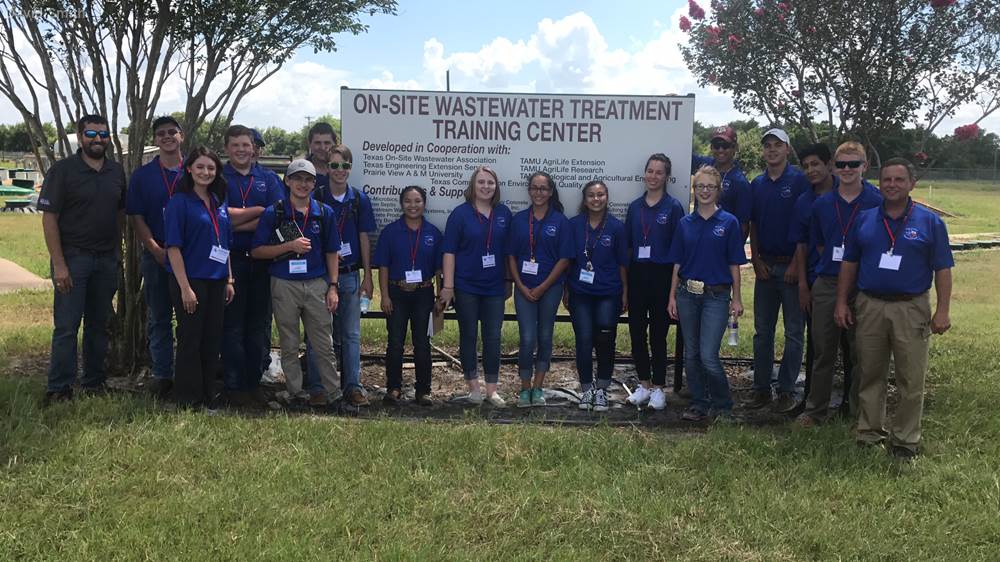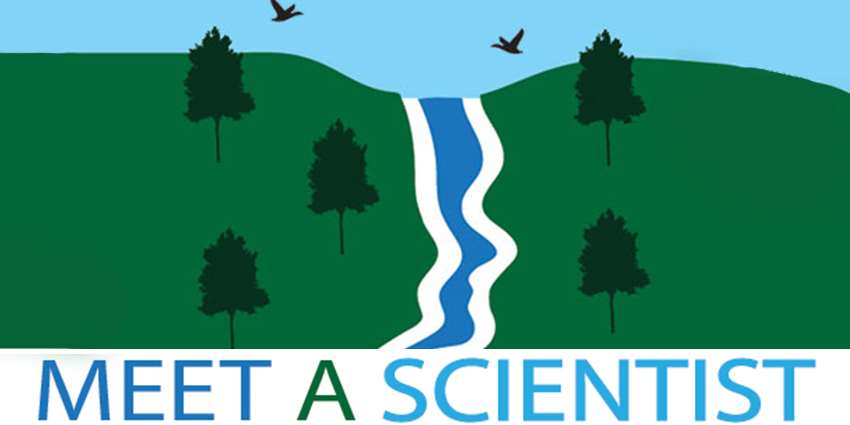Problem-solving and water management go hand-in-hand for David Smith, a Texas A&M AgriLife Extension Service program specialist at Texas A&M University in the Department of Biological and Agricultural Engineering.
Smith said interest in applying engineering solutions and meeting the challenges of water supply and efficiency led him to his career. He earned his bachelor’s in agricultural engineering in 1993 and his master’s in water management in 2015 from Texas A&M University.
“I began working as a landscape irrigation Extension assistant in January 1994 in the Texas A&M Agricultural Engineering Department immediately after earning my bachelor’s degree in the department,” Smith said.
During his time with AgriLife Extension, Smith has worked on various water projects, such as water resources issues, irrigation design, water management and wastewater treatment. “Aside from various roles in Extension, I have also operated my own irrigation consulting business and worked as a directional drilling engineer and surveyor for Scientific Drilling, Inc. in Midland,” he said.
Smith said he was inspired to pursue water management because of the realization that science and engineering play an essential role in solving water challenges. “Even more important is understanding the motivating factors that lead the public and the policymakers to accept and enact water management strategies,” he said.
Smith is also program coordinator for the Texas 4-H Water Ambassadors Program. About three years ago, he began working in a joint position with AgriLife Extension and Texas 4-H Youth Development. The result of their work is the award-winning Texas 4-H Water Ambassadors Program, which creates opportunities for youth to get involved in the agriculture and water industries.
“When we were first coming up with the idea of the program, we put together a small group just to see if the water industry would support something like this,” Smith said. “The response is really overwhelming and supportive because they understand that someone's going to have to fill their shoes at some point.”
The Texas 4-H Water Ambassadors Program provides high school youth an opportunity to gain advanced knowledge and develop leadership skills related to the science, technology, engineering and management of water in Texas.
The program takes about 40 students each year from various parts of the state and allows them to receive hands-on experience in the water industry. These students then have the chance to teach others about what they learned during their 12 months of being water ambassadors.

The program is divided into two parts: the Texas 4-H2O Youth Leadership Academy, an eight-day tour of Texas; and committing to a minimum of 40 hours of service over the 12-month period, giving back education and service in their communities.
During the tour, Smith said students visit various places throughout Texas and learn about water issues and different regions. “We address a little bit of background on science and water, the hydrological cycle, wetlands and watersheds, water management, conservation, water policy, water law and focus a lot on groundwater,” he said.
After the tour, part of the condition of being a water ambassador is giving back education and service in their communities. “They can do that by giving presentations, but I also give them voluntary and some required assignments throughout the year as part of their continuing education,” he said.
Smith said the program has been invited to many state water conferences. “We exhibited at the Texas Groundwater Summit, the Texas Ground Water Association and the Texas Water Conservation Association,” he said. “We go and the students get to meet these folks that are actually in the water industry and make contacts.”
To learn about different careers in water-related agencies in Texas, Smith said the ambassadors also visit the Texas Water Development Board and the Texas Commission on Environment Quality (TCEQ). In addition, they visit with scientists, GIS technicians that build maps and other water-related jobs.
Smith said the water ambassadors also attend rainfall harvesting and Texas Well Owner Network meetings and workshops in their communities. “We try to connect with the organizers and help with taking samples or even just collecting registration at the door,” he said.
The Water Ambassador Program was recently awarded TCEQ’s 2019 Texas Environmental Excellence Award (TEEA) in the youth category. For more information about the award, visit TEEA.
If students are interested in the program, Smith encourages them to apply or reach out to him for more information. Read this earlier Conservation Matters story about the program.

